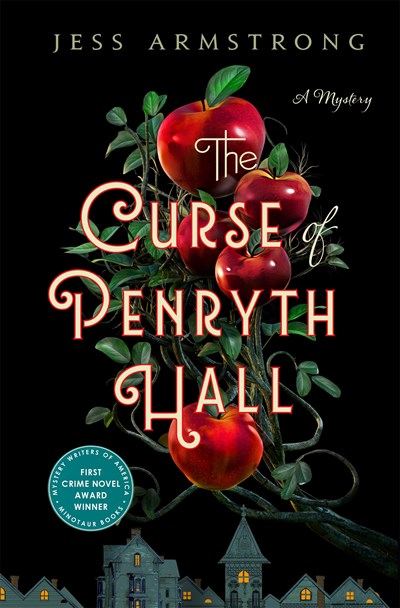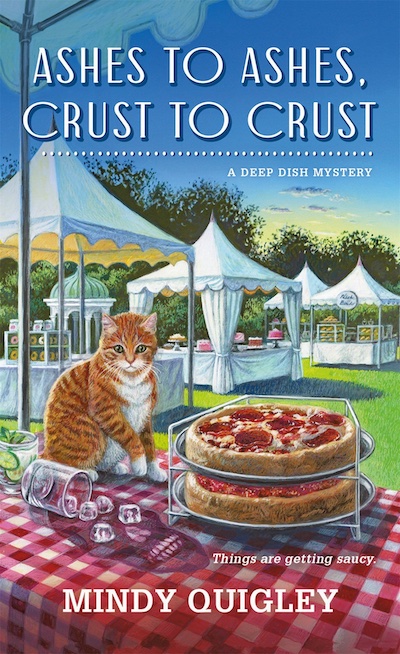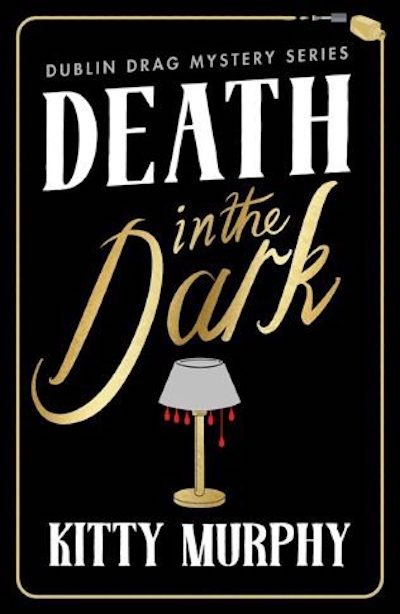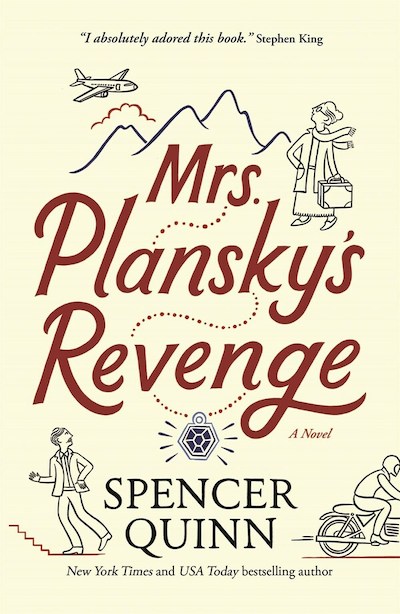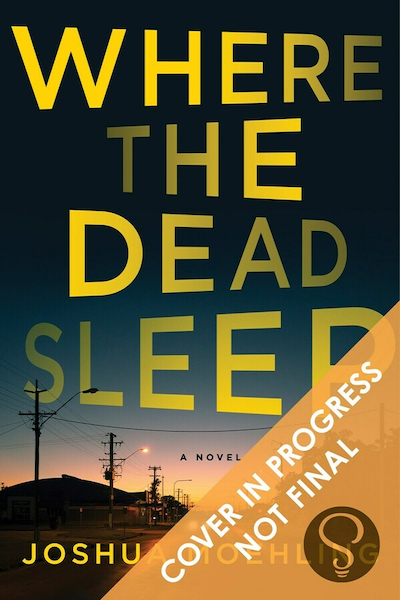Devil-may-care heiress Ruby Vaughn has just sent the latest of her boss’s housekeepers running, with the woman on the way out muttering something about “a den of sin and vice.” Ruby does like to knock back a few drinks and scarcely cares about propriety, having planned, while a nurse during the Great War, to set up home with her fellow nurse and lover, Tamsyn. When that antiquarian-bookseller boss announces, “I’ve been thinking,” Ruby knows it doesn’t usually bode well, but this time there’s an upside. The trip he wants her to undertake, delivering mysterious books to a Ruan Kivell in Cornwall, brings her back in contact with Tamsyn, now Lady Chenoweth. Penryth Hall, Tamsyn’s miserable home with her abusive husband, only makes Ruby long all the more for the life she could have had with Tamsyn. When awful Lord Chenoweth is found dead, his body slashed as though by animals, the area’s depths of superstition and past misdeeds begin to reveal themselves, as do the powers of Ruan, the local Pellar, a powerful folk healer. Ruby refuses to believe in the curse that the locals say Chenoweth perished from, pursuing instead the help of the fledgling science of forensics to figure out what happened and restore Tamsyn’s happiness. This debut won the Mystery Writers of America/Minotaur First Crime Novel Competition, a well-deserved honor for a book whose gutsy main character and immersive world-building will remind readers of Margaret Dove in Evie Hawtrey’s And By Fire.
Mystery & Detective
First things first: Quigley’s sophomore effort is every bit as witty, character-driven, and well-plotted as last year’s Six Feet Deep Dish. As always, Geneva Bay, Wisconsin chef and pizzeria owner Delilah O’Leary has a few too many things going on. She’s hoping to win the “Taste of Wisconsin” culinary contest, but can’t quite get the recipe exactly right. Her BFF and sous chef, Sonya, is having an affair with none other than the wife of a celebrity chef. And as luck would have it, he’s the judge for the competition. Bad timing! Meanwhile, her pit bull of a great-aunt is suddenly throwing a lot of shade her way. With no explanations. Even Butterball, the cat she shares with her ex-fiancé, wants out. But when visiting the new juice bar—owned by her ex’s annoying girlfriend—she witnesses one of the customers keel over, likely dead from a poisoned smoothie. And before you can say Pretzel Crust Deep-Dish Bratwurst Pizza, Delilah is drawn into some very risky goings-on. The satire is a joy, Delilah’s narration is sheer pleasure, and her restaurant crew provides plenty of balance. This is turning out to be one of the best new cozy series going.
“The only way to survive a whirlpool is to let yourself be dragged along by it,” realizes Evelyn, the confused daughter of an accused murderer. The murderer, Hugo Lamadrid, has been missing since a Buenos Aires train crash killed and maimed scores of passengers. Readers know that Hugo escaped the wreckage, where bodies are “piled up, jumbled together, crushed against the walls of the carriage, spilling out the window, dislocated, broken, busted.” But the police don’t know and have just been to his house about the murder. What the authorities do know is that Evelyn and her mother, Marta, suddenly and mysteriously got the urge to leave town after the police’s visit, and now the national media is fixed on the shrine they’ve set up at the home of Marta’s sister that begs the wounds “ofourlordjesuschrist” to help find poor, hapless Hugo alive on the train. A whirlpool indeed, in a book whose baroque abundance of language, strange observations, and even stranger ending are memorable and striking. For those who loved Julie Otsuka’s The Buddha in the Attic.
Growing up, Luke Tremblay loved being sent off to spend his summers with family on a small hamlet on Vancouver Island. Until high school hit and his parents learned he was gay and disowned him. Even his beloved Aunt Marguerite, a full-time island resident, refused to see him. So decades later, when his aunt dies and leaves Luke her estate, including a charming cottage and antique business, it’s a shock. He returns to the island with one goal: sell the properties and get back to Toronto. But when he’s attacked at the cottage by a seemingly random guy, who’s making crazy claims about his aunt, and when that guy is discovered the next morning dead in the garden, Luke can’t help but get pulled deeper into island life. Thanks also go to the Mountie, Sergeant Munro, aka Officer Beefcake, who, wouldn’t you know, was a childhood friend of Luke’s and still harbors a grudge for Luke disappearing all those years ago. There’s plenty to enjoy in this qouzy, from a budding romance to more crimes that need unearthing. And while Luke may not be the most charming of protagonists—he’s just a wee bit bitchy and somewhat of a snob—he’s certainly realistic. For anyone needing a quick vacation, this is it.
The Dublin Drag Mysteries, of which this is Book 2, is a bit like the TV shows “Friends” combined with “Cheers.” Except it’s contemporary, set in Ireland, everyone is a drag queen—except for our narrator and lead, a 20-something woman named Fiona (Fi) McKinnery—and the bar is a nightclub called TRASH. It’s sort of the B-list—or maybe even the C-list?—of Dublin drag venues.
As in the first book, Death in Heels, Murphy is quick to get to the action. Here it’s the disappearance of Sparkle McCavity, a vivacious young drag queen and assistant to the renowned bridal couturier, and queen in her own right, Miss Merkin. Merkin turns to Fi, asking for her help in finding Sparkle. Reluctantly, Fi agrees, only to be caught up in a murder at TRASH that’s absolutely ghastly.
Centered on Fi, her best buddy and roommate Robyn, and their tight circle of friends, the bon mots fly despite the tragedies that surround them. As the situation grows direr, and another queen disappears—with the Gardaí (police) increasingly looking at Fi & Co. with suspicion—the pressure is on for Fi to do what the detectives can’t do: solve the case. Death in the Dark is an exceptionally engaging read leaving this reader wondering: where will Murphy go next with this crew?
This propulsive series debut from the author of The Dirty Girls Social Clubsees the filthy, heavily armed, and none-too-bright Zebulon Boys arrive in rural New Mexico to take on a mix of Mexican Americans, Native Americans, and interracial locals, all of whom the would-be terrorists see as Mexicans who have to go. The leader, General Zeb, gets his hateful fans from around the country to come to his camp. They keep kidnapped “Mexican” women in a hole in the ground and take them out to be hunted. They’re also planning to bomb local sites to stop the Reconquista, the reclaiming of culture and land by those who lived in the area when it was part of Mexico.
The Zebulon Boys meet their match in Jodi Luna, a former poetry professor who’s returned to her roots in the area, taking over her retiring uncle’s job as the local, and sole, game warden. It’s a dangerous job—the most perilous in U.S. law enforcement, we learn. But Jodi is ready, using her intelligence, humor, and compassion to take on the men—one of whom starts to stalk her—and protect her daughter, her growing circle of friends, and two admirers.
Game warden is an unusual and interesting take on a police-procedural set up, and Valdés can surely tell a story, making this a winner all round.
Edgar Award-winning Hirahara’s first novel in this series, Clark and Division, was a New York Times Best Mystery Novel of 2021, among many other accolades; this follow-up will please fans with more thoughtful, poignant, and historically accurate investigations of Japanese American life after World War II.
After leaving the Manzanar camp in the first book and moving to Chicago, nurse’s aide Aki Nakasone and her parents have returned to California, where they prospered before being imprisoned, and where her father and others desperately hope to reclaim their land and businesses. Aki’s husband, Art, gets work at the Rafu Shimponewspaper (where Hirahara has worked), but his after-work drinking with other journalists leaves Aki feeling she saw more of him when he was in the army. She’s distant from her parents, too, despite sharing their home, with Hirahara portraying the generational difference as part of the estrangement that is the central theme of the book. Her characters raised in the camps display a kinship that transcends other bonds and leaves them markedly and painfully adrift from their parents.
When Art’s army buddy Babe goes missing after his father’s battered body is found, Aki sets out to find Babe and restore balance to her own unsettled life. This quest sees her explore elements of postwar life such as the competition between returning Japanese and Black Americans for housing and the effects of “shell shock” (PTSD) on a community. A must-read.
Just try not to fall in love with Loretta Plansky, the plucky, 70ish hero of this sweet, feel-good mystery. A widow—she regularly chats with her deceased husband, Norm—Loretta keeps busy in Florida with friends, family, and a mean game of tennis. She and Norm invented the Plansky Toaster Knife, which toasts as you slice—is that that genius or what?—and they managed to accumulate quite the nest egg. Which is helpful, since Loretta’s kids seem to be forever circling, seeking investments and loans for their hair-brained schemes. So when her grandson Will calls from college, and needs to be bailed out because of a DUI, it’s Loretta to the rescue—or at least Loretta’s bank account. Of course, the caller wasn’t Will, and the normally savvy Loretta wakes the next morning to find herself divested of savings, investments, and worse of all, her self-respect. After reviewing her finances and discovering that to get by, she’d need to do the unthinkable and move her 96-year-old father in with her, Loretta makes the shocking decision to head off, track down the thieves, and recoup her funds. This second part of the novel is a real delight. Yes, there is quite a bit of coincidence and luck, but there’s also a wild cast of characters, some surprising relationships, and real evolution on Loretta’s part. For fans of Simon Brett’s Feathering novels and Richard Osman’s Thursday Murder Club series
In this second in the series, Assistant Sheriff Ben Packard is juggling two major incidents. One is the death of his mentor, Sheriff Stan Shaw, which raises the question of whether Ben should run to replace Shaw as Sheriff of Minnesota’s Sandy Lake County, several hours north of the Twin Cities and a popular vacation spot. For someone who’s lived in the county for only a year or so, Ben’s got plenty of supporters, but he isn’t sure he’s ready to give up being a detective. Plus, he’s anxious about how being gay is going to play out at the polls. The other incident is the death of Bill Sanderson, shot multiple times in his bed. Nobody loved Bill—except maybe his ex-wife, who’s the sister of his new widow—but nobody seemed to hate Bill enough to actually kill him. Not his business partner, not his gambling buddies, not his spouse. To solve Bill’s death, Ben goes even deeper into the Sandy Lake community than ever before, peeling off the many dark and gritty layers, deciphering the complex family relations, and at one point putting his own life at risk. This novel works fine as a stand-alone, but readers of the first in the series, And There He Kept Her, will appreciate seeing Ben’s development and piecing together the disquieting world of Sandy Lake.
Addy Zantz is like a cold-blooded animal, taking his emotions from his environment as some creatures take their body heat from the sun. He’s an Uber driver, working what he calls the River Styx, the loop from LAX to various hotels, all the while investigating the fully clothed-drowning death of Annie Linden, music legend and a customer who turned into a friend. Annie was a contemporary of Joni Mitchell, and seemed to resemble Mitchell in feeling shut off from the world, taking tentative steps into reality through music and trips in Addy’s car, when she sampled humanity in tiny sips. At first, Addy’s investigation seems borne of nothing else to do. But when a friend, an orthodox Jew who’s too much of a stoner to save himself from the accusation, is accused of the crime, with Addy as an accessory, the cabbie must hit the road hard to find out what really happened to Annie. As the best noirs do, The Last Songbird stays inside the mind of its investigator even while the case casts its glance from distant acquaintances to distant times and decisions. This one keeps returning to the same questions even as it explores the possibilities: who was Annie really? And if Addy finds that out, can he find himself? If you liked T. Jefferson Parker’s A Thousand Steps, try this.

